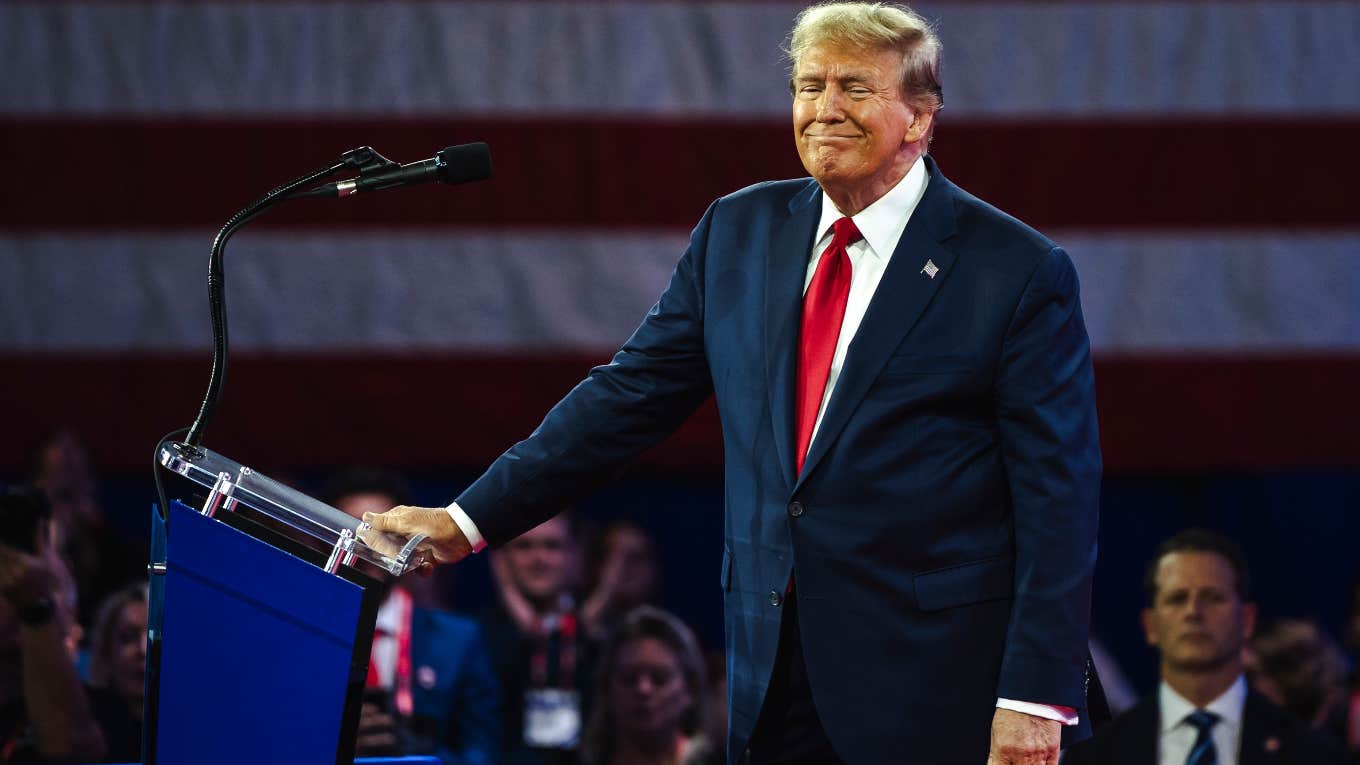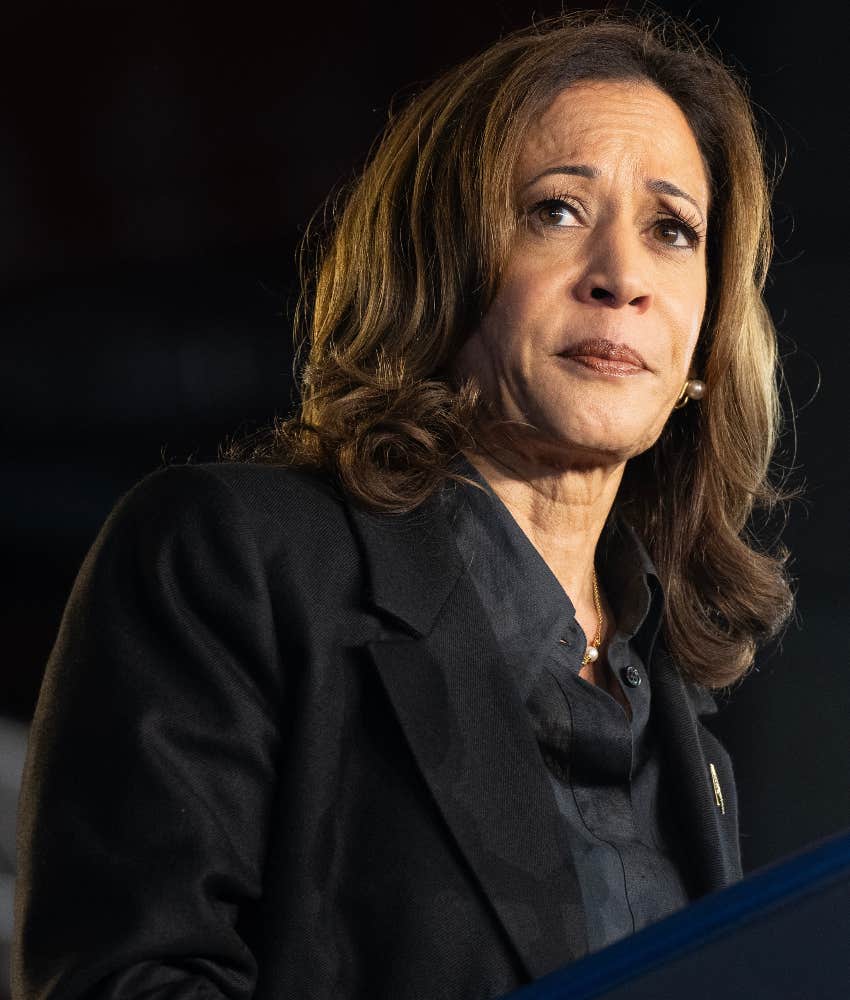New Research Reveals One Thing About The 2024 Election That Made People More Miserable Than The Actual Results
If you've ever thought you were more stressed leading up to an election than you were over the actual results, you're on to something.
 Jonah Elkowitz | Shutterstock
Jonah Elkowitz | Shutterstock The 2024 presidential election was a particularly polarizing time in American history. Voters went through a major party’s candidates changing, and a previous president re-entering the fray. It was chaotic, to say the least, and certainly stressful.
While everyone did anxiously await the election results with bated breath, a new study suggested that there was actually something more anxiety-inducing for voters than the results themselves. Instead, it was the stress leading up to the results that made people the most miserable.
Researchers discovered that anticipatory stress took more of a toll on people during the 2024 election than the actual results did.
The study, which was published in the journal Psychiatry Research, examined how the 2024 presidential election affected people’s levels of depression and anxiety. The results were somewhat surprising.
 lev radin | Shutterstock
lev radin | Shutterstock
Eric W. Dolan, who covered the study for PsyPost, said it “found that stress related to election news and the buildup before the election was linked to higher risks of depression and anxiety among young adults. Interestingly, stress about the election results themselves was not tied to increased mental health symptoms.”
To perform the study, researchers used the CARES, or COVID-19 Adult Resilience Experiences Study. CARES kept track of participants from the onset of the coronavirus pandemic to 2025. Researchers specifically looked at a group of 778 participants who filled out surveys in 2022 and again after the 2024 election.
The sample of CARES participants the researchers focused on had good reason to be stressed out about the 2024 election. Dolan noted the majority were “liberal-identifying women and individuals from gender or sexual minority groups.” According to him, “Many of the key issues covered in election news — such as reproductive rights and transgender healthcare — directly affect these groups … This could help explain why news-related stress had such a strong link to mental health symptoms in this group.”
According to the study, the election results were distressing, but not as much as the buildup to them.
Researchers noted that the presidential election cycle is basically designed to be stressful on its own. “The U.S. presidential election is a prolonged, high-stakes process that typically begins over a year before Election Day,” they said, “starting with primary campaigns and followed by months of general election activities, debates and intensive media coverage.”
 cristiano barni | Shutterstock
cristiano barni | Shutterstock
But the most recent presidential election could be considered even more stressful than average. They added, “The 2024 presidential election, in particular, was marked by an unprecedented confluence of stress-inducing events, including assassination attempts, candidate change, legal controversies, and extreme political polarization.”
As there was such absolute disarray leading up to the 2024 election, it’s no wonder that this sense of “anticipatory stress” correlated with higher levels of depression. Everything Americans went through in the buildup to the 2024 election was overwhelming. By the time the actual results came, many had resigned themselves to fate, whether they agreed with it or not.
Anticipatory anxiety is a very real issue.
The American Psychological Association (APA) described anticipatory anxiety as circumstances “in which someone develops fear or dread in the face of an anticipated event or situation.” Psychology professor Julie Buckner, Ph.D., told the APA, “When we think of anxiety, it’s really an emotional response to a perceived future threat. Even though the outcome might be good — they might get a job — there’s also this perceived threat of not having a job, and then of course what the implications of that would mean.”
The sense of impending dread or doom someone feels leading up to a big, stressful situation is most likely anticipatory anxiety. A presidential election would certainly qualify as both big and stressful. For many, the worries leading up to the actual election are worse than its outcome. By that point, you’re almost desensitized to it.
Mary-Faith Martinez is a writer with a bachelor’s degree in English and Journalism who covers news, psychology, lifestyle, and human interest topics.

